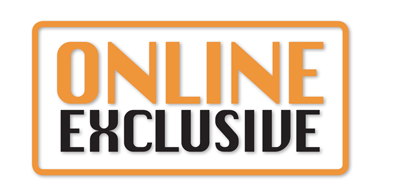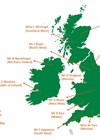
We invited Dominic Brown, the top-ranking candidate from the Urology National Training Selection Interview 2023, to share his wisdom on the interview process. Dominic is currently an ST3 working in North West London.
Kelly Ong, Urology News Trainees Sub-Editor.
1. It is an exam, not an interview
Reframing National Selection as an ‘exam’ rather than an ‘interview’ is a subtle but important way of recognising what is required to succeed on the day. The word ‘interview’ suggests that your character / manner / commitment is assessed to ascertain whether you will make a good trainee.
This is not the case. Regard each station as a different exam question that needs to be answered in the way which maximises your marks. Use the correct words in the correct order, confidently, concisely, and clearly, and you will score well. If you score well, the odds are you will get a training number.

2. Gain as much outpatient exposure as possible
This may seem like an obvious point: clearly, you would want as much exposure to all elements of urology prior to the interview (exam!). However, concentrate on outpatient settings particularly if you are a junior trainee with little exposure to general clinics and flexible cystoscopies, etc. Simply shadowing a registrar and picking their brains after each patient to understand their thought process (for example: why they have ordered a certain scan or what the next management steps will be). The best answers to these scenarios do not solely depend on your knowledge on how to examine, investigate and treat a condition, but also when you have had the chance to do it (or at least seen it done) yourself.
3. Podcasts – maximise your revision time
Everyone has their own preferred way of revising and this may not suit all of you. However, I have found a number of both interesting and helpful podcasts that I relied on quite heavily for the interviews (exam!). Not only did they bring a lot of new and relevant information to my revision, they also consolidated my existing knowledge. They dramatically increased the number of hours I was ‘revising’ by listening during all the times I would otherwise not have been revising. For me, this was in the gym, driving or commuting to work. Any time it was socially acceptable (and sometimes even when it wasn’t), I would put some headphones in and listen to one of the following (including and not limited to):
- FRCS Urocast
- The Urology Docs Podcast
- Urology Viva Training (Master the Medicine YouTube channel)
4. Say it out loud
Every point you gain during the interview (exam!) will be based on something you have said out loud, hence, it would make sense that a large chunk of your revision and preparation should be out loud.
Prepare with a partner. Do your sessions by video calls to recreate the environment you will experience on the day. Try to setup your own environment as it would be during the interview. Practice in the location you intend to use for the interviews so that you are in your comfort zone and can rely on talking on autopilot come showtime.
Practise saying your answers aloud even when working on your own. You may not have as much time with a partner as you anticipated and the more you familiarise yourself with saying your answers in a confident and succinct way, the better they will sound on the day. I wrote a ‘perfect answer’ script for questions and practised saying them aloud so I felt confident I could recite an answer which would reliably tick the examiners’ boxes. Record yourself and listen back to your answers. You may find that you speak faster than intended or say ‘umm’ a lot. Highlighting areas to improve in your delivery will go a long way to improving your confidence. This will give the examiner confidence in your abilities whilst also maximising how well you communicate the knowledge you possess.
5. Try, try, and try again
This last point is one I hope you can all ignore due to your success. It would be disingenuous of me to give the impression I was successful at National Selection the first time. It was my third time last year when I finally got the position I was after and each subsequent year, I ranked higher than my previous attempts. The reasons for that are simple and to be expected: with each additional year I had spent working in urology, I was more familiar and comfortable with the interview process and what was expected of me. So, if it is not your first try or you are unlucky enough to not get what you are after, please do not worry. In urology, you are not penalised for the additional time out of training working in this specialty (unlike general surgery or orthopaedics). Hence, you can use this to your advantage. I am incredibly grateful for the two years I had out of training working as a registrar. The experience of working at that level has prepared me very well for ST3, and played a huge part in getting me the training number I wanted this year.
If you are in the unlucky cohort of people who do not get an ST3 number next year (once you have had the chance to begrudge the system much like I did), I hope you can revisit this point. You will be a far better urologist and a far better candidate next year (or the year after) for the experience and eventually I think you may, like me, appreciate that it was the silver lining after all.
Best of luck to all of you and I hope to see you flourishing as trainees over the next few years!








